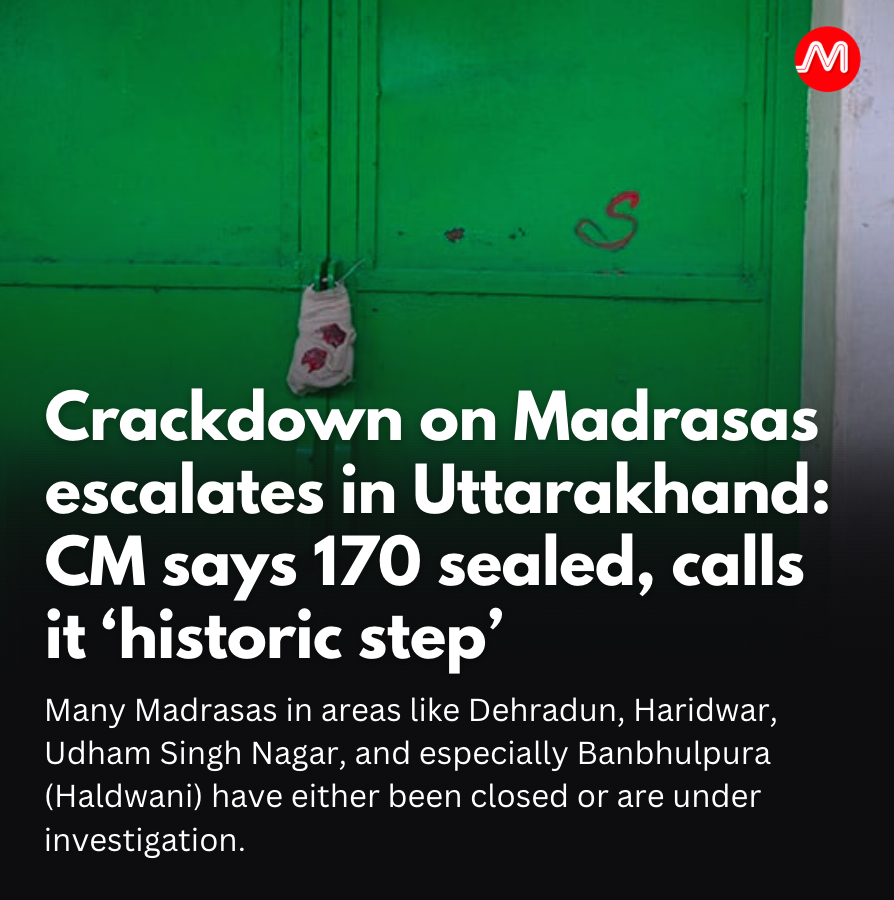
The crackdown, initiated earlier this year, has intensified over the past two months. District administrations, under directives from the state government, have conducted verification drives to identify unregistered madrasas. In Udham Singh Nagar, 129 such institutions were identified, followed by 57 in Dehradun and 26 in Nainital. A district-level committee, comprising district magistrates and senior police officials, has been overseeing the inquiry.
Chief Minister Dhami emphasized the state's commitment to eradicating illegal activities, stating, "We will not allow any illegal activity in the state. Strict action will be taken against illegal madrasas and those running them." He further instructed authorities to investigate the funding sources and origins of these institutions.
The closures have sparked opposition from the Muslim community, which has termed the move unconstitutional. Community leaders argue that the action disproportionately targets minority institutions and disrupts the education of thousands of students. In Dehradun alone, 14 unregistered madrasas were sealed, affecting around 150 students, many from financially disadvantaged backgrounds.
The state government maintains that the crackdown is not aimed at any specific community but is a measure to ensure compliance with legal and educational standards. Officials have reported that approximately 500 madrasas operate without recognition from either the education department or the Madrasa Board, while around 450 are registered. The unregistered institutions often function under the Societies Registration Act, which the government argues does not suffice for educational oversight.
In response to the closures, the government has announced plans to establish "modern madrasas" to provide better education to students affected by the shutdowns. These new institutions aim to integrate traditional religious teachings with contemporary subjects, ensuring a more holistic education.
